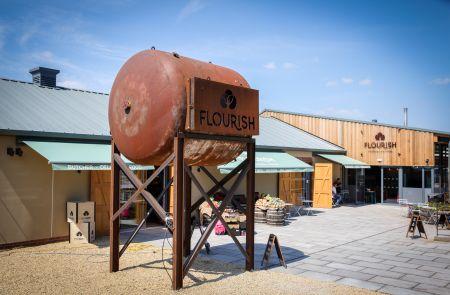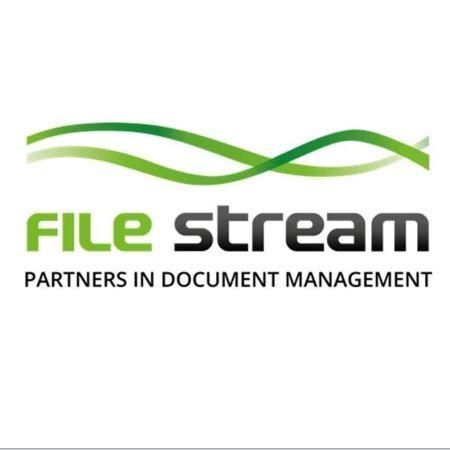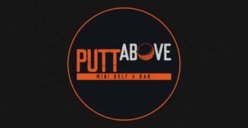10 Ways To Be More Environmentally Sustainable
The coronavirus crisis has made us all relook at our businesses from every angle. One of those being the environmental impact we have. There has never been a more critical time for companies to become more environmentally sustainable. Many rely on the health of the planet in ways we don’t even realise.
For the coffee industry especially, having a healthy planet is essential. With the launch of our newly designed, fully compostable packaging this month, we thought we’d ask our customers their top tips to being more environmentally focused.
1. Ditch The Plastic
One of the most talked about concerns for the future of our environment is the impact of plastic. Studies by the United Nations suggest that, if current trends continue, the world’s oceans will contain more plastic than fish by 2050.
This issue has become such public knowledge that more and more people are aware of businesses that are contributing to this burgeoning plastic waste. There is also a sizable audience that will gravitate to any businesses that show a willingness to reduce their plastic output.
At Bristol Twenty Coffee, we strive to recycle and re-use whenever and wherever possible. We have phased out all single-use plastic cups, replacing them with compostable coffee cups.
As well as rolling out compostable coffee bags and boxes, our new labels are made from rice paper so will break down with the bag. We’ve even ditched plastic tape in favour of compostable brown tape.
2. Reduce and reuse – if all else fails, then recycle
The mantra “reduce, reuse, recycle” refers to the things we can do to lower our environmental impact – in order of priority. A lot of companies are emphasising their “100% recyclable” packaging as a way to look greener, but the fact is that only a small proportion of fully recyclable packaging is actually recycled in the end – even when you put it in the recycling bin.
The best thing you can do to be environmentally sustainable is to reduce consumption in the first place to avoid using the earth’s valuable resources for production of new things. For things you can’t reduce, opt for second-hand or reusable alternatives which minimise the need for more production and carbon emissions. Only when these aren’t viable options should you opt for recyclable things that are better than single-use products destined for landfill.
You can put those three priorities on a checklist and assess all the different things you need in your coffee shop – for instance food packaging, furniture, napkins and cutlery – to see where you can find better solutions.
And of course, dispose of rubbish responsibly in general waste, recycling or compost bins. If you can, order more specialised recycling bins available in your local area.
3. Use Sustainable Coffee
Where does your coffee come from? Did it cause deforestation? Is it grown sustainably and for a fair wage? A lot of coffee comes from unsustainable suppliers guilty of harming natural habitats by using harmful pesticides, herbicides and fertilisers. Coffee is in fact sprayed with more chemicals than any other edibles except for tobacco.
But you can make a difference by choosing environmentally sustainable brands. Look for certifications like Rainforest Alliance, UTZ or Fairtrade which all hold some of the highest environmental and ethical standards. We use as many certified farms as possible and if not possible we make sure that the standards implemented by these certifications are still up held.
4. Offer More Vegan And Vegetarian Options
One of the biggest ways an individual can be more environmentally sustainable and cut their carbon footprint and prevent deforestation is to reduce meat and dairy consumption, and many are eating less of it as a result. So why not offer more vegan or vegetarian options to customers?
Limiting fish in your food is also impactful, as overfishing is a huge problem leaving oceans depleted so the people who depend on seafood for survival are affected.
You don’t have to go full veggie-café if that’s too high a risk. With a few tasty meat and fish options and a wider range of irresistibly-looking vegan meals, your customers won’t complain. Also make sure there are several vegan milk options for your coffees.
5. Don’t Print Paper Receipts
An oft-forgotten environmental sinner is the humble paper.
Did you know that the shiny, no-ink receipts from card terminals and many receipt printers contain the harmful chemical BPA? It means you can’t recycle them, and they can cause a wide range of health problems with longterm exposure. Applicable to all types of paper receipts is, well, they are made of paper. Although not plastic, which we all know is bad, it comes from the very trees we need more of globally in order to curb carbon emissions and to be environmentally sustainable.
Fortunately, most cloud-based POS systems allow you to send digital receipts via email or text. In a coffee shop, most customers will not require a receipt anyway, but those who do can benefit from having a digital copy that won’t go lost in the washing or desk drawer.
6. Use Coffee Grounds As An Effective Fertiliser
Did you know that used coffee grounds that end up in landfill release methane, a far more damaging greenhouse gas than CO2, as they break down? When you imagine just how much coffee we brew internationally, it’s obvious the way we dispose of coffee grounds is not so trivial.
Instead of throwing the coffee in the bin or compost, you can give it people or local gardening groups tending to plants. Coffee is an excellent fertiliser that adds nutrients to depleted soil, attracts worms (good thing), supporting plant growth. You can just scatter it around the plants – even your potted ones in need of some TLC.
7. Assess Your Heating And Cooling Setup
You don’t want to put off customers by being too cold or too hot, so it’s important to have a certain temperature inside. But are your windows, doors and walls properly insulated? Can you let enough natural air in when needed to be more environmentally sustainable?
Using radiators less can slash your energy consumption, but if warm air is seeping out through doors or windows, there’s little hope of turning down the heater during cold weather. Also check if you have (or can get) double-glazed windows that are made for keeping in the heat.
Air conditioning is a saviour during hot summers, but they can actually exacerbate outdoor heating and obviously use energy. Use windows where possible to air indoor areas, use old-fashioned desktop fans, and only resort to air conditioning when really necessary.
8. Use Water And Electricity More Efficiently
Conserving water protects from future water shortages and saves energy in the process of transporting it to you. There are many other reasons to protect water supplies, so it’s worth assessing your own use.
Are you filling up more jugs of water for customers in advance than you actually need? Is your dishwasher (if using) or washing machine Energy Star-qualified? Can you wash more things in the sink, using less water, than the dishwasher? Is your toilet using lots of water and can be replaced with a better flushing mechanism?
With electricity, switch off as many things as you can at night so there are no unnecessary lights or machines on standby overnight. Use sensors for the lights in the toilet, and check if your fridges, freezers and brewing equipment are energy-efficient too. Avoid tumble-drying which uses a lot of energy; instead, hang out textiles to dry naturally.
If you rely on high-energy equipment, set some rules about when to have it off or at least on standby.
9. Limit Menu Options To Be More Efficient
The fewer menu items, the more energy-efficient you can be with cooking and the less waste you’ll produce. You can buy larger quantities of ingredients (usually, that means less packaging overall), focus on making the recipe just right and use less energy on the oven or other cooking equipment.
For your permanent menu items, many hospitality POS systems can be set up to track ingredients of the food you sell, prompting you to order exactly what you need, in time for when you need it. Such ingredient tracking can prevent you from ordering too much or too little, or too early for when you need it, helping you to fight food waste.
Focusing on quality rather than quantity of foods can actually make you stand out among the competition. You can offer a new kind of sandwich every day so customers are motivated to return daily, a delicious cake using seasonal fruit, or a couple of lunch meals people would be too curious about not to buy.
Buy local, this not only helps your community to thrive it will also mean less airmiles. Buying local vegetables, meat, and dairy might be slightly more expensive, but people will be willing to pay more for the sense of community investment.
10. Buy Organic And Eco-Friendly Inventory Where Possible
Whatever kitchen things you use, choose organic and eco-friendly where possible. Non-organic kitchen cloths, for example, may be made of cotton grown with harmful pesticides exhausting the land and biodiversity where it grew.
Toilet paper is another example. Don’t go for virgin-material rolls responsible for trees being cut down, when you can go for recycled brands that work just as well. Aluminium kitchen foil also has a resource-intensive production process. You can get foil with a much lower impact on the environment than supermarket-bought brands.
With any new products you buy, it’s always a good idea to ask the question: what is the environmental impact of this, from start to end of its lifecycle? This may take time to research, but once you know what suppliers to use for each product, it gets much easier. Plus, you start to be more conscious of the lifecycle of everyday products and where it ends up.


















